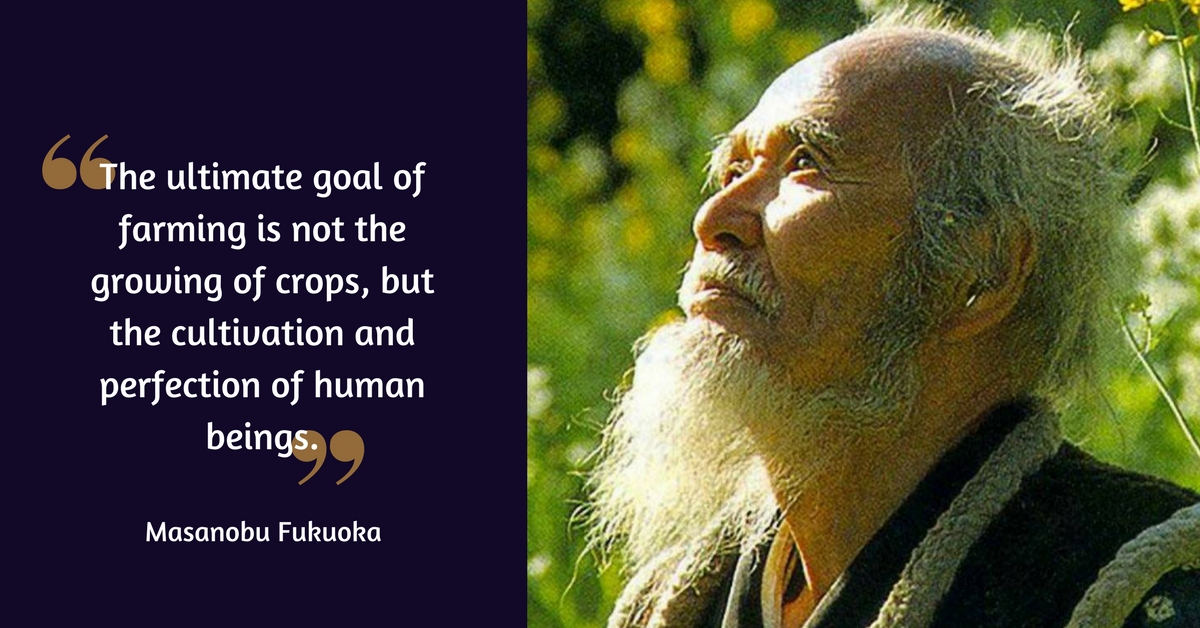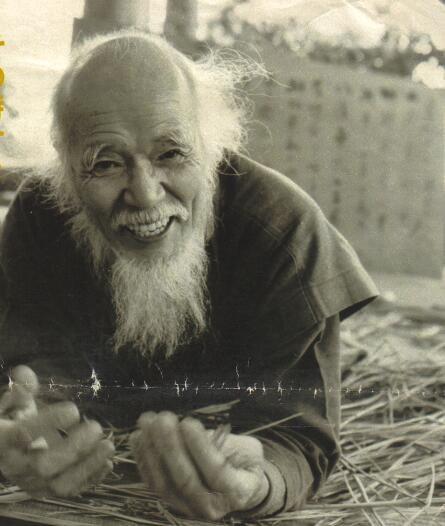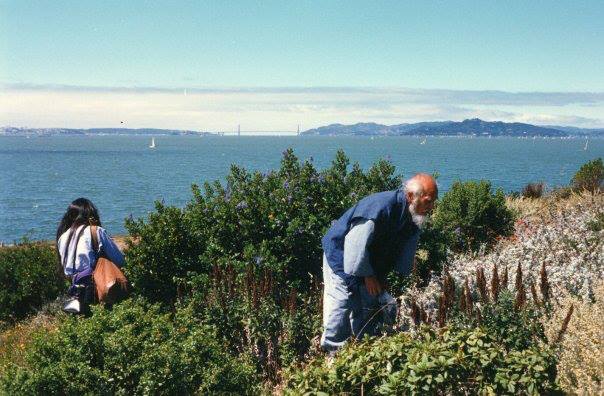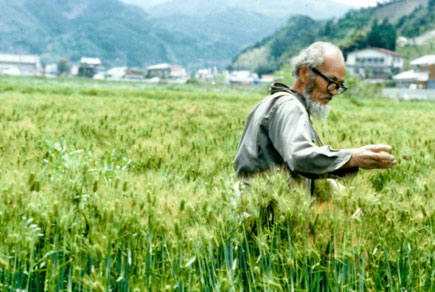Revolution With One Straw: How One Japanese Farmer Changed Modern Agriculture
Celebrated for pioneering shizen nōhō, which translates to natural farming, Fukuokais is considered to be one of the five giant personalities who inspired the organic farming movement.

The Better India is partnering with An Inconvenient Sequel: Truth to Power (2017), a film that documents former U.S. Vice President Al Gore’s quest to find out how human ingenuity and passion can tackle climate change. This article is part of a 4-part series on climate change heroes.
The consequences of modern-day agricultural practices on the environment are devastating.
Industries seem to be in a mad race to grow profits and meet the demand of a growing population. From fertilisers and pesticides infiltrating groundwater to encroachment of forestland, most practices have left the environment in a precarious state for human and animal existence.
In fact, according to reports at least 14 percent of global greenhouse gas emissions come directly from the agricultural sector, playing a significant role in the climate change.
Realising just how grave the problem is, many agriculturists and farmers have switched to organic practices over the years, which have not only resulted in the production of chemical-free harvests, but also ensured less damage to the ecosystem.
Masanobu Fukuoka was a Japanese farmer and philosopher who spearheaded natural farming, and began what is widely acknowledged as a revolution in the history of conventional agricultural practices.

He is considered to be one of the five giant personalities who inspired the organic farming movement along with Rudolf Steiner from Austria, Lady Eve Balfour from the United Kingdom and J.I. Rodale from the United States.
Fukuoka is celebrated for pioneering shizen nōhō, which translates to natural farming, where you give up conventional practices like tilling, weeding, pruning and the use of fertilisers or pesticides.
This ecological farming method involves a “do-nothing” approach. The term does not refer to a lack of effort, but to the complete evasion of manufactured inputs and equipment.
You may also like: Drought Does Not Scare This Farmer. His Unconventional Methods Are Helping Him Survive & Thrive!
A Ramon Magsaysay award winner, Fukuoka also played an elemental role in reintroducing the ancient Japanese technique of seed bombs.
Born in the early 20th century to an aristocratic family in Ehime, Japan, Fukuoka started out as a research scientist specialising in plant pathology, after training as a microbiologist and agricultural scientist.
While he worked as an agricultural customs inspector in Yokohama, an incident changed his life.
After being hospitalised with pneumonia in 1937, ‘a spiritual experience’ during his recovery prompted the young man to look at the world differently.
Disillusioned by Western agricultural sciences and practices, Fukuoka gave up his post as a research scientist and returned to his family’s farm on the island of Shikoku in southern Japan.

However, his farming was interrupted with the onset of World War 2. Following the war, much of the land owned by Fukuoka’s family was seized by U.S. troops., leaving the farmer with only three-eighths of an acre of rice land and a hillside citrus orchard.
Like they say, setbacks only make the determined surer. Taking up natural farming once again in 1947, he managed to successfully harvest rice and barley using the no-till farming method.
To raise awareness and help others reap benefit from his methods of farming, Fukuoka started penning down his philosophy in the same year and wrote his first book Mu 1: The God Revolution.
You may also like: A Beginner’s Guide to Natural Farming From an NRI Couple Who Returned to India to Follow Their Dream
However, his most celebrated book, which found worldwide recognition, was The One-Straw Revolution, which was published in 1975 and later translated into English in 1978.
Translated into over 20 languages and selling more than one million copies, Fukuoka’s book ended up inspiring an international movement where scores of individuals began applying his principles. It is believed that the practice of permaculture in the West found its major influence from his philosophy.
Starting from 1979, Fukuoka started travelling across the world extensively to give lectures and worked directly in different countries to plant seeds and re-vegetate areas like deserts and barren lands.

In recognition to his extraordinary work and achievements, Fukuoka was bestowed with various awards and accolades. In 1988, Fukuoka received Visva-Bharati University’s Desikottam Award.
In 1997, he was presented with the Earth Council Award at the Earth Summit+5 forum in Rio de Janeiro honouring him for his contributions to sustainable development.
One of his famous quotes says,
Many people think that when we practice agriculture, nature is helping us in our efforts to grow food. This is an exclusively human-centred viewpoint. We should instead, realize that we are receiving that which nature decides to give us. A farmer does not grow something in the sense that he or she creates it. That human is only a small part of the whole process by which nature expresses its being. The farmer has very little influence over that process, other than being there and doing his or her small part.
You can watch the trailer of the film here:
You can check out the film’s global Facebook page here.
Like this story? Or have something to share?
Write to us: [email protected]
Connect with us on Facebook and Twitter.
NEW: Click here to get positive news on WhatsApp!
If you found our stories insightful, informative, or even just enjoyable, we invite you to consider making a voluntary payment to support the work we do at The Better India. Your contribution helps us continue producing quality content that educates, inspires, and drives positive change.
Choose one of the payment options below for your contribution-
By paying for the stories you value, you directly contribute to sustaining our efforts focused on making a difference in the world. Together, let’s ensure that impactful stories continue to be told and shared, enriching lives and communities alike.
Thank you for your support. Here are some frequently asked questions you might find helpful to know why you are contributing?


This story made me
-
97
-
121
-
89
-
167













